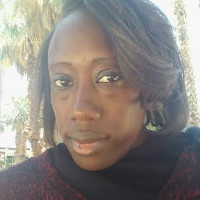Unlearning “Perfect” As a Woman of Color in a Racist World
Perfectionism is often a trait of many folks who are in recovery from eating disorders, including me. My childhood traumas left me feeling flawed, inherently bad, and not good enough for anyone. I believed that if I was a “good girl” and excelled at all things, my life would be better.
School became my escape from the hell at home, and in scholastic achievement, I found something positive. I found a reward that I could not get anywhere else. Society-wise, the odds were stacked against me. My sense of self and body image shifted a lot growing up because of the messages I was receiving about race and beauty, and I came to know the reality of racism.
While my teachers hailed me as a model African-American student, perfectionistic thinking came in to my world when comparing myself to my white peers. I even wanted to have lighter skin because messages I received said lighter is better, and in the mind of a 7-year-old dark-skinned girl, it leaves a mark. Along with my trauma making me feel dirty and flawed, the racism I endured told me I was imperfect as well. I strove to meet a bar others set, and felt that maybe I could find wholeness and completeness in hitting that bar.
As it turned out, it left me reaching for what was basically air. This perfectionistic mindset was entrenched in me. “I have to be perfect,” I thought and the thoughts continued to spiral. What was perfect? What does perfect mean? For me, it meant I got love, for me it meant the harsh waves of trauma would calm, for me it meant I was just as beautiful as my white peers, it meant I was a whole person, it meant I would finally have worth.
My eating disorder started at 14 years old – the height of the typical teenage angst – but it was more than angst for me: it was longing, trying to fill the empty spaces in me with being the best. Yet now, five years into my recovery, I have had to unlearn the notion of being perfect; I can have these things without being perfect.
The goal of having to be pristine to be worthy and to be perfect carried over into my recovery as well. I always thought recovery was a straight shot up, but it is not. I get lost in social media’s presentation of what recovery is and its display. I have beaten myself up many times because my recovery didn’t look like that movie-style ending where I’m eating ice cream and laughing and saying, “Phew! Glad that’s over!” with a freeze frame to finish it off. There are many ways it is said, but recovery is not perfect, it is a bumpy road, it is like a sine wave. I feel this is one of many reasons that my recovery had taken the time it did to gain momentum.
My life was a bumpy road, my life was full of pitfalls and black ice patches. To have recovery be this up and down was a thing that terrified me. I strained so hard for a flawless victory, but I now know perfect and recovery don’t mix. I am learning how to embrace the broken bits, to embrace the black ice and the pitfalls, to embrace imperfection. It’s taken me a while, and I still have a ways to go. I am trying to find my beauty and my strength not in the eyes of other but with my own eyes.
Most importantly, perfect does not exist. To be vulnerable, to be broken, and to be flawed is to be human. Recovery isn’t perfect, but I’ve come to believe it is possible.
Lakesha Lafayett is California native, a mental health advocate, a poet and published author. She loves reading, writing, being a peer support specialist, and working in the community.





